 To enhance service speed and avoid tariff delays, we've opened a US warehouse. All US orders ship directly from our US facility.
To enhance service speed and avoid tariff delays, we've opened a US warehouse. All US orders ship directly from our US facility.
| Cat. No. | Product Name | Field of Application | Chemical Structure |
|---|---|---|---|
| DC77890 | Edifoligide sodium |
Edifoligide sodium is a decoy oligonucleotide that binds to and inhibits E2F transcription factors and thus may prevent neointimal hyperplasia and vein graft failure
More description
|

|
| DC77887 | DNMT1 aptamer sodium |
DNMT1 aptamer sodium is a DNA aptamer for binding and inhibition of DNA methyltransferase 1 (DNMT1).
More description
|

|
| DC77886 | Diranersen |
Diranersen, an antisense oligonucleotide, is a tau protein synthesis reducer. It is used for the study of Alzheimer's disease.
More description
|

|
| DC77885 | Diranersen sodium |
Diranersen sodium, an antisense oligonucleotide, is a tau protein synthesis reducer. It is used for the study of Alzheimer's disease.
More description
|

|
| DC77877 | Decafentin |
Decafentin is an insecticide and is active against Mamestra brassicae L..
More description
|

|
| DC77866 | BMS-986497 |
BMS-986497 (ORM-6151) is a CD33-targeted antibody-conjugated GSPT1 degrader. BMS-986497 delivers the GSPT1 degrader SMol006 to CD33-expressing cells, inducing GSPT1 protein degradation. BMS-986497 is promising for research of acute myeloid leukemia (AML).
More description
|

|
| DC77865 | Belcesiran |
Belcesiran, a siRNA, is an alpha 1 antitrypsin (A1AT) inhibitor that acts by allowing the liver to synthesise the A1AT protein and pass it into the bloodstream.
More description
|

|
| DC77864 | Belcesiran sodium |
Belcesiran is an alpha 1 antitrypsin (A1AT) inhibitor that acts by allowing the liver to synthesise the A1AT protein and pass it into the bloodstream.
More description
|

|
| DC77857 | ARC5690 sodium |
ARC5690 sodium is an anti-mouse P-selectin aptamer. ARC5690 bound to recombinant mouse P-selectin with a KD of approximately 15pM in vitro. ARC5690 showed a significant anti-inflammatory effect
More description
|

|
| DC77844 | A9g sodium |
A9g sodium is an RNA aptamer that inhibits the enzymatic activity of prostate-specific membrane antigen (PSMA).
More description
|

|
| DC77835 | BI033 |
BI033 is a selective inhibitor of BTB and CNC homology 1 (BACH1) specifically binds to BACH1's N-terminal with a Kd of 9.0 uM. It disrupts the BACH1–HDAC1 interaction, enhances H3K27 acetylation at BACH1 target genes, and upregulates angiogenic genes, suggesting its therapeutic potential for myocardial infarction and ischemic vascular disease.
More description
|

|
| DC77833 | CT1113 |
CT1113 is a potent dual inhibitor of USP25 and USP28 that effectively reduces c-MYC levels and exhibits strong anti-tumor activity. It can be used in research on colon and pancreatic cancers.
More description
|

|
| DC26122 | Pomalidomide-C2-NH2 hydrochloride Featured |
Pomalidomide-C2-NH2 hydrochloride is a synthesized E3 ligase ligand-linker conjugate that incorporates the Pomalidomide based cereblon ligand and a linker used in PROTAC technology.
More description
|
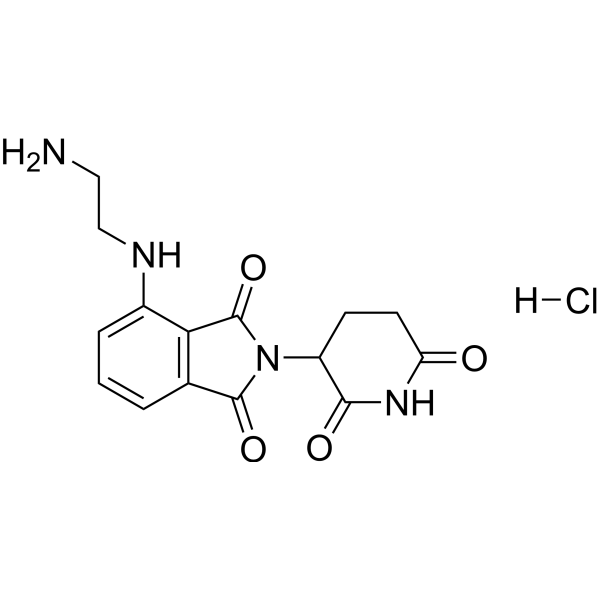
|
| DC21962 | TL13-12 Featured |
TL13-12 is a novel Anaplastic Lymphoma Kinase (ALK)-PROTAC developed through conjugation of TAE684 and the cereblon ligand pomalidomide.
More description
|
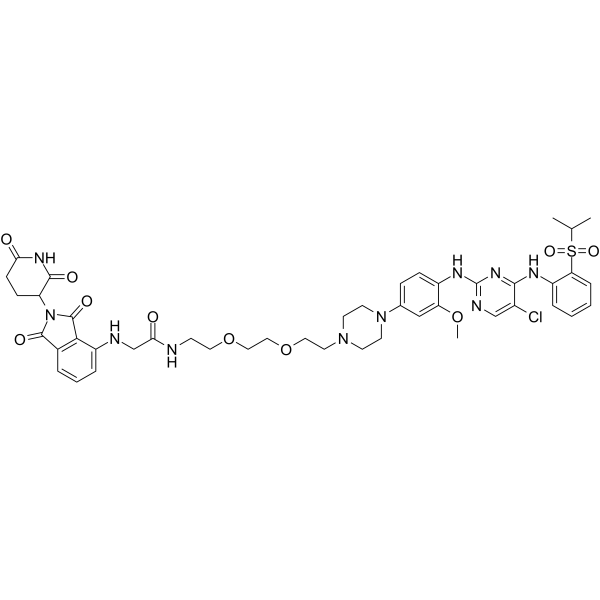
|
| DC21893 | dBET57 Featured |
dBET57 is a novel BRD4 heterobifunctional small-molecule ligand (PROTAC), exhibits significant and selective degradation of BRD4 BD1 (DC50/5h=500 nM), but is inactive on BRD4 BD2..
More description
|
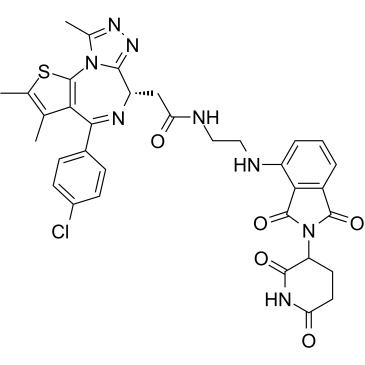
|
| DC77714 | S3226 Featured |
S3226 is an inhibitor for Na+/H+ exchange subtype 3 (NHE3) with an IC50 of 0.2 µmol/L in rat NHE3 transfected fibroblasts. S3226 exhibits protective activity in rat ischemia-induced acute renal failure models.
More description
|
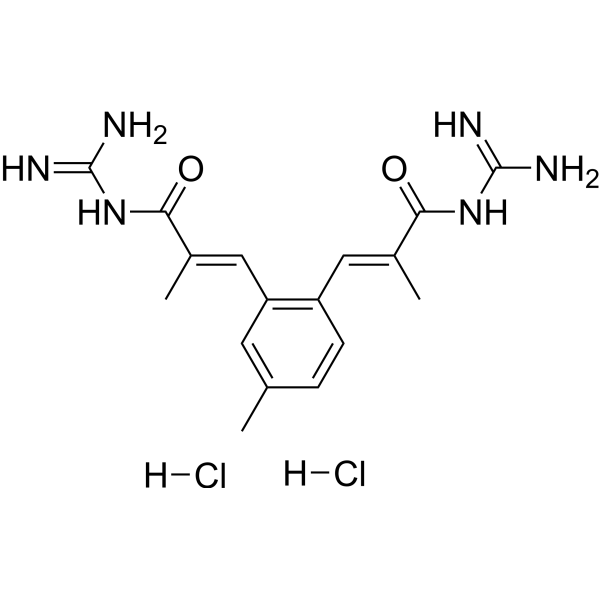
|
| DC74167 | SC-919 Featured |
SC-919 (SC919) is a potent, selective inhibitor of IP6K (Inositol hexakisphosphate kinase) with IC50 of <5.2, <3.8 and 0.65 nM for human IP6K1/2/3, respectively.
More description
|
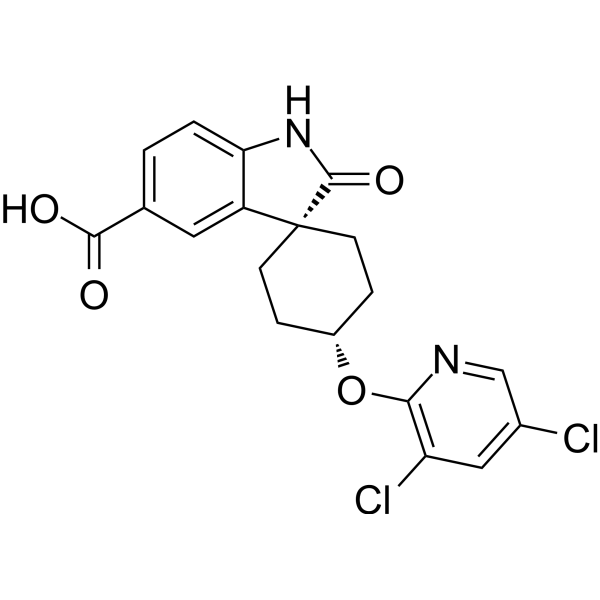
|
| DC31420 | JPH203 dihydrochloride Featured |
JPH203, also known as KYT-0353, is a potent and selective LAT1 selective ( L-type amino acid transporter 1) inhibitor. JPH203 can very potently inhibit l-leucine uptake. JPH203 inhibits YD-38 cell growth. JPH203 up-regulated the population of apoptotic Y
More description
|
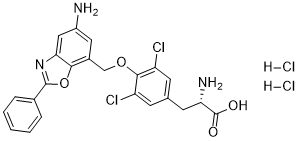
|
| DC77813 | Zeltociclib Featured |
Zeltociclib is a cyclin-dependent kinase inhibitor with antitumor effects.
More description
|
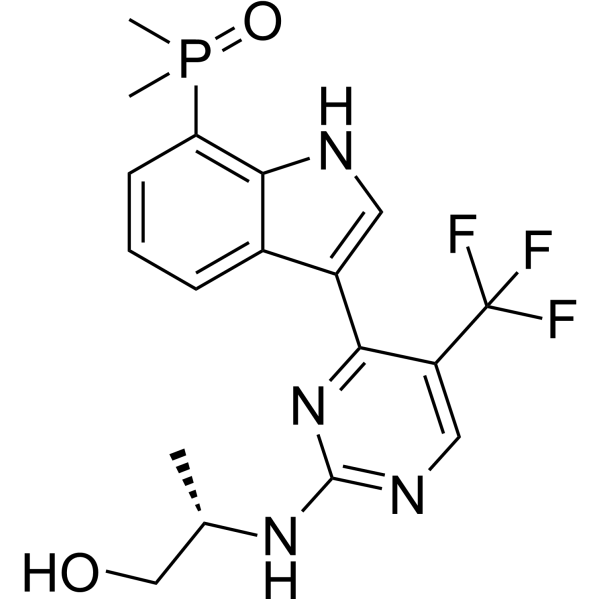
|
| DC74555 | GYS32661 Featured |
GYS32661 (GYS 32661) is a potent Rac inhibitor capable of inhibiting both Rac1 and Rac1b, inhibited activated Rac1 with IC50 of 1.18 uM in in vitro pull-down assays.
More description
|
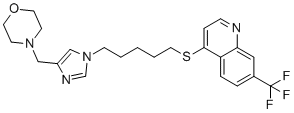
|
| DC23922 | Cercosporamide Featured |
A broad-spectrum natural antifungal compound that acts as a selective and highly potent fungal Pkc1 kinase inhibitor.
More description
|
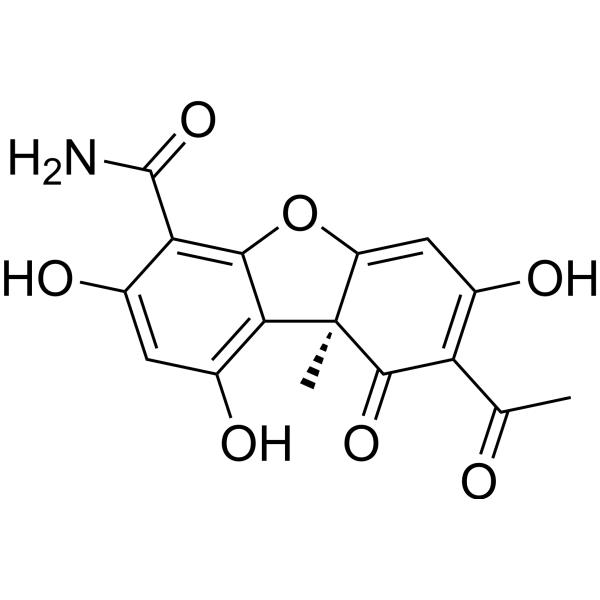
|
| DC33138 | EMD-61753 hydrochloride Featured |
Asimadoline HCl is a κ-opioid receptor agonist potentially for the treatment of pruritus. Asimadoline has also been shown to be used in the treatment of irritable bowel syndrome.
More description
|
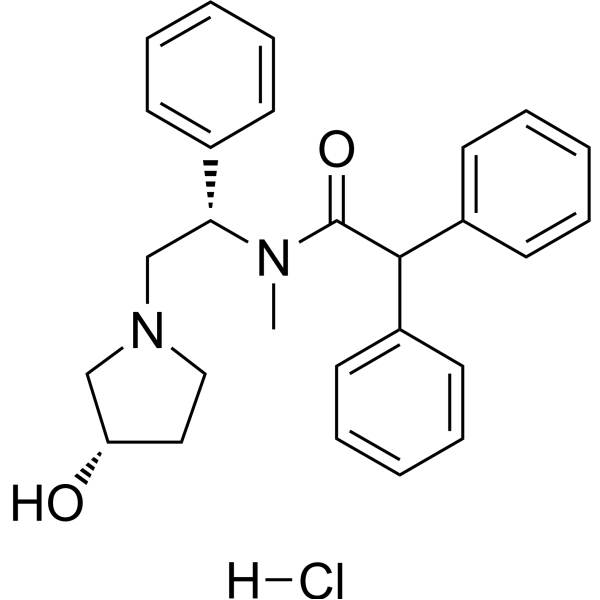
|
| DC7122 | Tazemetostat(EPZ-6438) Featured |
EPZ-6438 is a potent, selective, and orally bioavailable small-molecule inhibitor of EZH2 enzymatic activity with Ki value of 2.5±0.5 nM.
More description
|
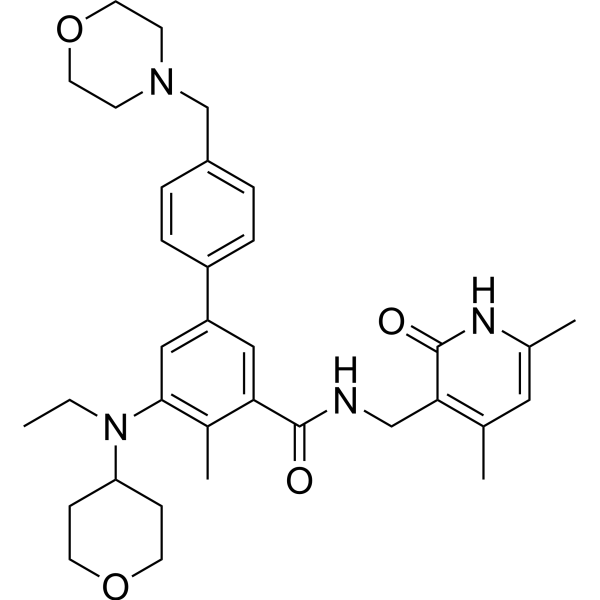
|
| DC26003 | TOPK inhibitor-1 HCl (OTS-964 Analogue) Featured |
Novel PDZ binding kinase (PBK) inhibitor.
More description
|
.png)
|
| DC8808 | BX 513 hydrochloride Featured |
BX-513 hydrochloride inhibits MIP-1α-induced intracellular calcium mobilization (IC50 = 2.5 μM).
More description
|
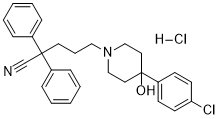
|
| DC25075 | Sivelestat sodium Featured |
A potent, specific and competitive inhibitor of human neutrophil elastase with IC50 of 44 nM.
More description
|
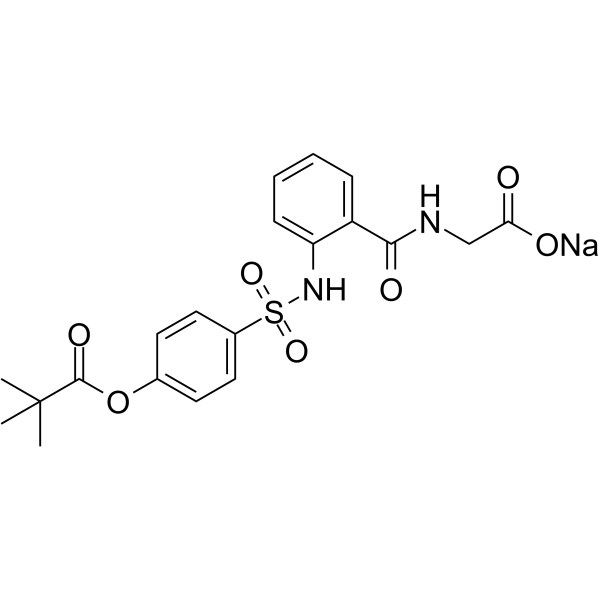
|
| DC31451 | CCS-1477(CBP-IN-1) Featured |
CCS-1477 is a potent and selective p300/CBP bromodomain inhibitor, is targeted & differentiated from BET inhibitors in prostate cancer cell lines in vitro. Combination of CCS1477 & JQ1 resulted in a highly synergistic inhibitory effect on proliferation in normal 22Rv1 cells. Global gene expression analysis revealed significantly fewer altered genes after CCS1477 (27 up, 119 down) compared to JQ1 (196 up, 655 down).
More description
|
.gif)
|
| DC21557 | RB-011 Featured |
A small molecule that disrupt 14-3-3 dimers at low micromolar concentrations and induce rapid down-regulation of Raf-MAPK and PI3K-Akt signaling in Jurkat cells.
More description
|

|
| DC45677 | 5α-Cholesta-7,24-dien-3β-ol Featured |
5α-Cholesta-7,24-dien-3β-ol, a sterol, can be found in hamster cauda epididymal mature spermatozoa.
More description
|
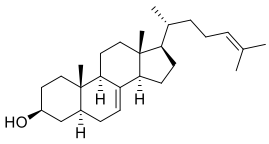
|
| DC32956 | Desmosterol Featured |
Desmosterol is an endogenous agonist of RORgamma; Intermediate in the synthesis of cholesterol.
More description
|
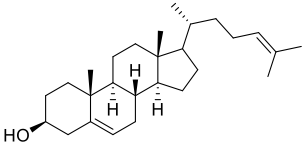
|